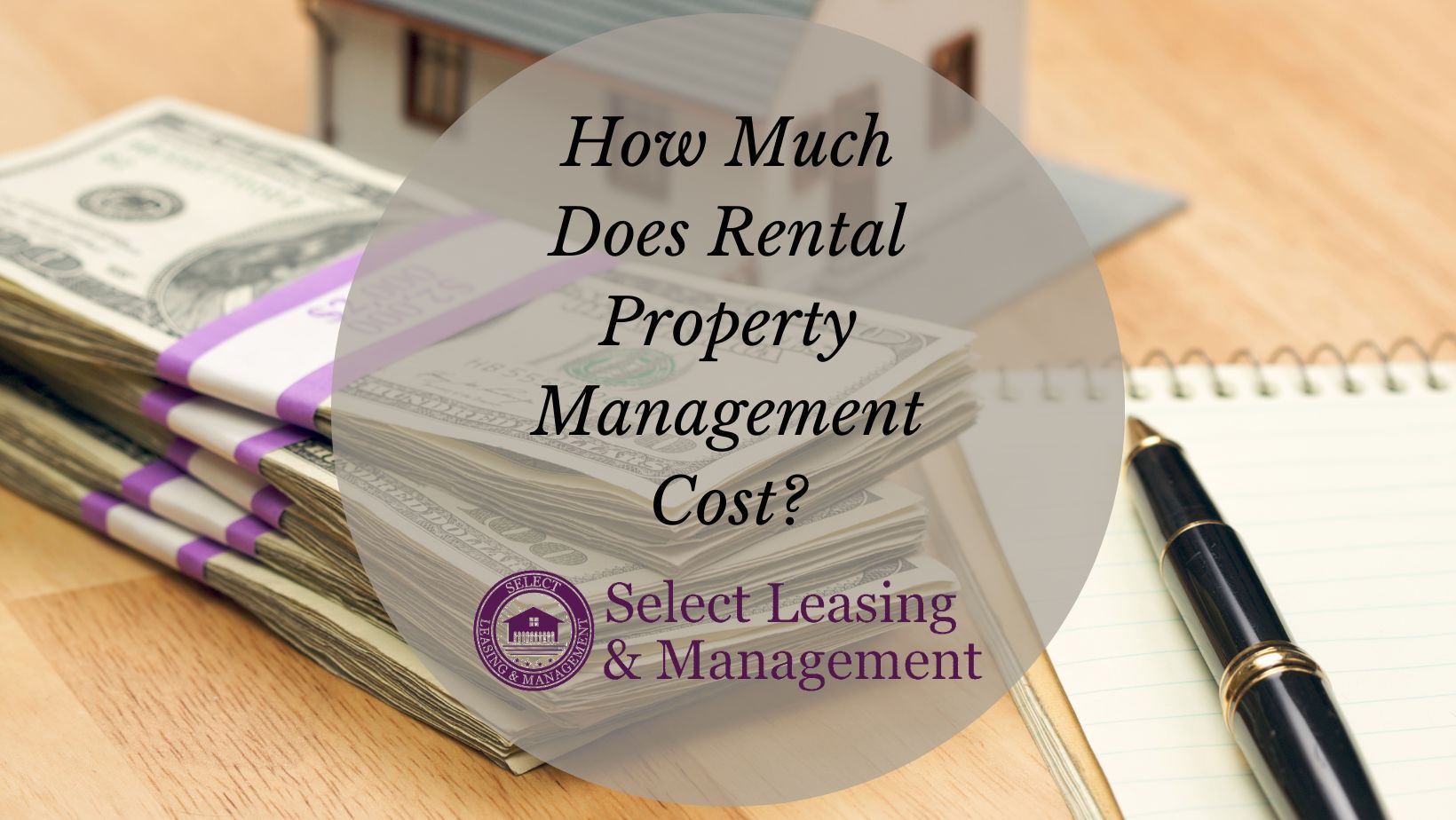How Much Does Rental Property Management Cost?

Rental property owners have two choices when it comes to management. They can do it themselves, or they can hire a property management company. A landlord with only one or two rental units located close to home might be successful at self-managing, and for the cost-conscious, the DIY approach is tempting. But while the financial cost might seem lower, that is not always the case once you crunch the numbers.
On the other hand, someone who owns multiple units, lives far away, or has a full-time job and family obligations can soon feel overwhelmed. They simply can’t do it all. In this case, going it alone can cost dearly in other ways like time, energy, and stress.
Return on investment is the number one concern of anyone who owns rental real estate. The first step in doing that calculation, then, is to understand how much rental property management costs.
And, not to spoil the ending, most property owners we deal with have discovered that having an independent company take care of the day-to-day needs of their property management is well worth the cost.
How Property Management Companies Calculate Fees
So, how much does rental property management cost in terms of fees paid to a management company?
Management companies typically start by charging a minimum fee based on a percentage of monthly rent. This base rate averages about 8% to 12% of the monthly rent collected. On top of that, they may offer additional services at an additional charge, according to the terms of the contract.
So, a house renting for $1000 a month could cost a landlord anywhere from about $80 to $120 each month for management services. An apartment house with 10 units could cost $800 to $1200 each month.
Several variables determine where on the percentage scale a rental property might land:
- Property size. A large apartment complex means more work for a management company than one single-family home. It will probably include public areas that must be cleaned and maintained as well as multiple dwellings and tenants to deal with.
- Condition. Brand new, high-end properties may cost more to keep in good condition. On the other hand, an old property that requires constant repairs might require a lot of attention. Companies will likely consider the probable workload when setting a price.
- Location. Just as real estate prices vary from the coasts to the Midwest, and from urban areas to rural, so do rents, and therefore property management fees. In addition, buildings in high-demand neighborhoods may fetch higher fees with luxury amenities to care for (pools, fitness centers, meeting spaces) and keep to certain standards.
Companies will look at all of these factors, along with the level of service they can offer, to determine how much their rental property management will cost.
What Landlords Can Expect from the Base Rate

There are certain services that are built into the typical base rate contract for property management. These include:
- Rent collection and processing
- Accounting and providing reports to the landlord
- Regularly scheduled upkeep and occasional repairs
- Emergency maintenance
- Contact with tenants for maintenance and repair requests, complaints, and other issues
In short, a property management company takes care of the day-to-day operations at the property, keeping it clean and in good repair. They act as the liaison between the landlord and the tenants for all communications. A property manager might have an office onsite, as in large apartment complexes, or work from their own office and be available when needed.
Find Out About Additional Charges in the Contract
Every contract is different, so it is important for landlords to understand exactly what their minimum payment will get them, and what additional services will cost. For example, Select Leasing & Management includes a marketing plan to advertise and show properties to prospective renters. Other companies can charge extra for this.
Luckily, contracts are almost always negotiable. It should be noted, though, that any add-ons to a company’s basic list of services will undoubtedly result in a higher percentage of rent charged.
Following are some common details to look for when negotiating a contract with a management company:
- Set up fee. Usually $300 or less, this one-time fee pays for the paperwork to set up accounts and transition management responsibilities to a new property management company.
- Rent collected vs. rent due. Look for a contract that charges its percentage based on rent collected instead of rent due. When tenants are late or do not pay their rent, this keeps fees in line with actual cash flow.
- Vacancy fee. Property managers still need to maintain empty apartments. They may charge a reduced rate for upkeep until they find a new tenant.
- Lease fee. Sometimes called a tenant placement fee, this covers expenses for screening potential tenants, move-in inspections, and drawing up the lease. It may be refundable if a tenant ends up being evicted.
- Evictions. Property management companies can handle eviction proceedings when necessary. They will charge for their time and legal counsel.
- Repairs and large maintenance projects. Property management companies may have workers on staff to handle this work, or they may hire outside contractors on an as-needed basis. They may require a reserve account that they can draw from to pay for these (and provide receipts) or pay for things themselves and bill the landlord (usually adding a markup).
- Approval. Property management contracts should spell out which decisions they can make about the property and which will need approval from the landlord. For example, anything over an agreed upon dollar amount might need the landlord’s consent.
- Contract termination charge. Should the landlord decide to switch rental management companies or otherwise end the contract before it expires, they will usually owe a termination fee.
Landlords must be sure that they understand the terms of the contract and what property management is likely to cost each month—especially if a management company’s base fee includes only the essentials. These additional charges can pile up fast.
The Cost of Cutting Corners
While rental property management costs might seem high, the services they provide are valuable. If a building lacks basic maintenance, or repairs are put off or done haphazardly, the property’s condition will deteriorate.
Property management fees also pay for the company’s expertise in finding and keeping good renters. Screening and background checks are essential. Without them, bad tenants can ruin rental units and drive away good tenants. It will end up costing the landlord more to evict residents, clean up messes, and deal with dropping property values.
Benefits Besides Money
Getting the right rental property management company on board saves money in the long run. Not only that, the expenses are tax deductible. But the benefits go beyond financial. With a property management company in charge of day-to-day operations, landlords will have time for their own homes, families, and leisure.
Most of all, they will have the peace of mind that everything is under control at their rental property. We think that’s worth the price—and then some!
Cover image by Andy Dean by Canva.com
Share this post










